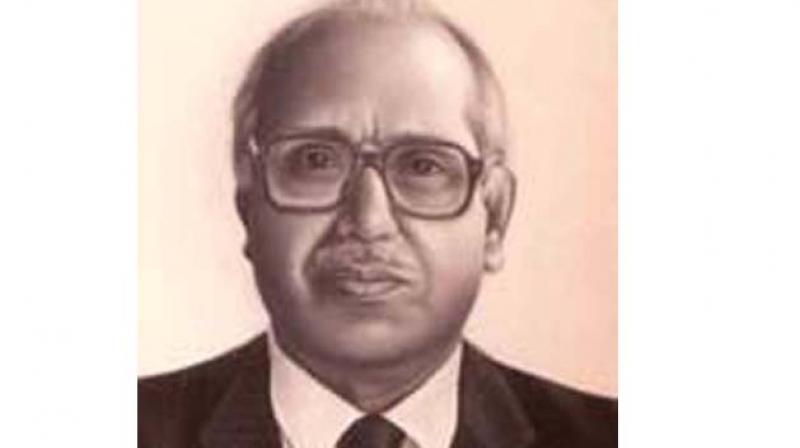He was a humanist among historians: Prof Suresh Jnaneswaran

Bidding farewell to a legendary Vice-Chancellor who made historical scholarship dignified and respectable in Kerala is difficult. A humanist and scholar in the renaissance mould, Professor Thandayamparambil Kunhikrishnan Ravindran (TKR) was historian, Poet, amateur painter and a great humanist who loved and inspired his students in profound measure.
He laid the foundations for historical studies at Calicut and Kerala Universities. An Editor par excellence he ensured the high standards of the Journal of Indian History and provenanced the Journal of Kerala Studies both published by the Kerala University. His historical works are fifteen of which six are in Malayalam.
TKR studies of history works were self- referential. He concentrated on a few central concepts that he pursued relentlessly and cogently. A reflective individual, he followed a scientific methodology, critical and assimilative.
To him the Vaikkom Satyagraha or the Caste question were not isolated spectacles to be viewed from outside. An objective truism of the age was the existence of Caste as a determinant in all temporal and spiritual activities.
T.K. Ravindran, a strong critique of the Caste system was as vocal as Padmanabhan Palpu , Kumaran Asan, T.K. Madhavan, Sahodaran Ayyapan, et al, in advocating the redemption of the depressed castes.
The popularity of his masterpiece Gandhi and Vaikkam Satyagraha has not waned or been surpassed in research and hermeneutics even after four decades of existence.
In Asan and Social Revolution in Kerala (1977), T.K. Ravindran picturizes Kumaran Asan as the greatest intellectual antibody of caste prejudice in Kerala. Ravindr-an's concern for the subaltern mingles with that of Kumaran Asan when he emphasized that without social equality and social fraternity, political equality and political fraternity had no meaning.
Professor Ravindran's contribution to historical scholarship as editor of the Journal of Indian History has been exceptionally prodigious. In the Preface to the Golden Jubilee Volume (1973) of the intellectually acclaimed Journal of Indian History, the Editor had emphatically penned his philosophy. Ravindran wrote interalia : "Glorification of the past and tuning it up to the needs of the present are common errors that the scholars of emerging nationalities have indulged in and we have quite a crop of such coruscating, My Country- My People- histories, in all countries."
In a pioneering and comprehensive study, T.K. Ravindran subjected the administrative system in Malabar to historical scrutiny through his works: Malabar Under Bombay Presidency; Cornwallis System in Malabar; Towards a Liberal Policy and Institutions and Movements in Kerala History. He critiqued the native law for exacerbating social evils and inequity.
Ravindran co-nsidered the Kurichiya rebellion as more important than the rebellion of Pazhassi and Velu Thampi. Its nature as a pure peasant revolt, with no stigma of feudal uprising makes the Kurichiya rebellion all the more important.
A poet of great beauty and charm he ornamentally sculpted over 20,000 poems. An anthology, 'Accidently Yours' was published by the Regional Institute of English, Bangalore. The Congress honoured him as a 'Historian of Eminence'. The Ind-ian cultural essence was epitomized by him - all inclusive, never excluding aspects of culture or philosophy in cheap anathema or championing an unjust past in easy apotheosis.
By Professor Suresh Jnaneswaran
The author is formerly: Director, School of Social Sciences; Dean, Faculty of Social Sciences, University of Kerala

